Cholesterol Management & Heart Disease Prevention in Beverly Hills & California
High cholesterol and heart disease prevention doesn't have to feel confusing or scary. At Be Well Berlin, we provide clear explanations, evidence-based treatment, and a plan that works for your lifestyle.
Cholesterol & Heart Disease Prevention Overview
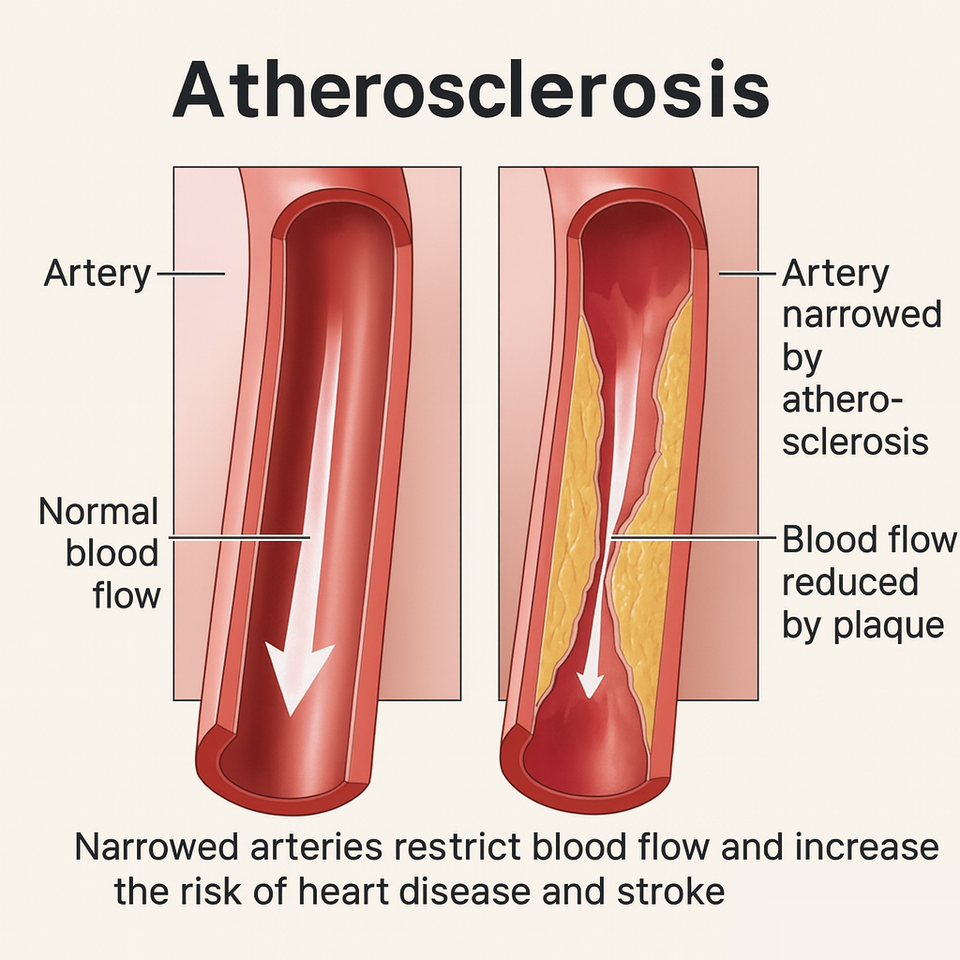
Understanding Cholesterol And Atherosclerosis
Cholesterol is a waxy substance in your blood. Some cholesterol is essential for cell function, but too much LDL (“bad” cholesterol) can lead to atherosclerosis — the gradual buildup of plaque inside your arteries.
Plaque is soft and fatty at first but can harden over time. This buildup is cumulative — it starts early in life and worsens over decades.
The biggest danger comes when plaque ruptures, which can block blood flow if there's a build-up of plaque downstream in the arteries. If this happens in the heart, it causes a heart attack; in the brain, it causes a stroke.
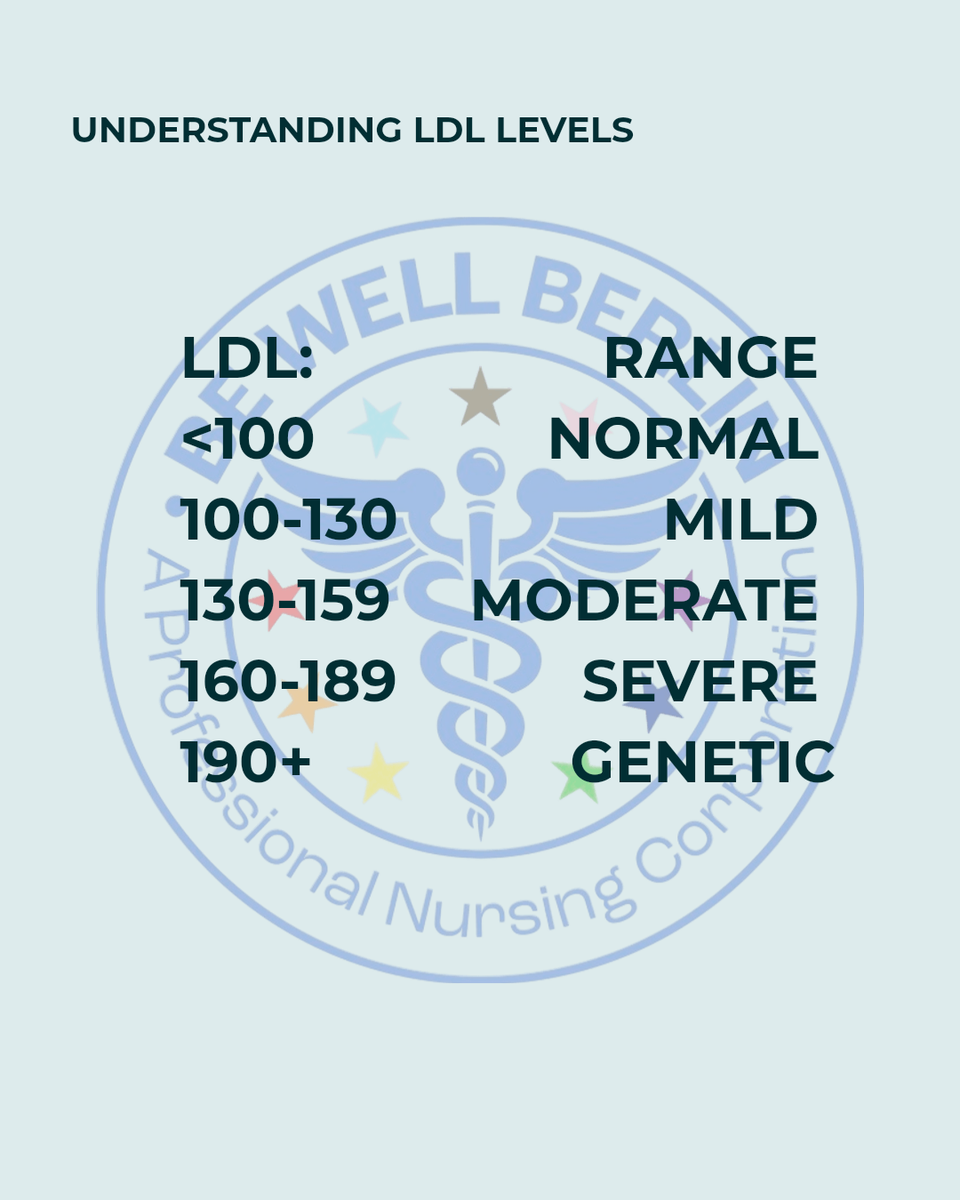
Why High Cholesterol Matters
Uncontrolled cholesterol can:
- Narrow arteries, limiting blood flow
- Increase risk of heart attack, stroke, and peripheral artery disease
- Damage kidneys and other organs over time
- Combines with other risk factors like diabetes, smoking, or high blood pressure to multiply risk
Understanding LDL Cholesterol Values
- <100 mg/dL – Optimal: Ideal for most people
- 100–129 mg/dL – Near Optimal: Usually fine if no other risk factors
- 130–159 mg/dL – Borderline High: Consider lifestyle changes or medications depending on 10-year risk of heart attack or stroke.
- 160–189 mg/dL – High: Strongly consider treatment or additional imaging, even with low short-term risk
- ≥190 mg/dL – Very High: Often genetic — treatment is essential

When To Treat Cholesterol: ASCVD Risk Assessment
At Be Well Berlin, we follow the American College of Cardiology/American Heart Association (ACC/AHA) guidelines.
We use the ASCVD Risk Calculator to estimate your 10-year risk of heart attack or stroke.
This tool considers:
- Age and sex
- Blood pressure
- Total and LDL cholesterol
- Smoking and diabetes status
What the numbers mean:
- Above 7.5% 10-year risk: Guidelines recommend starting a statin medication.
-
Above 20% 10-year risk: High-intensity statins or combination therapy may be needed.
But 10-year risk isn’t the whole story. If you’re young and otherwise healthy, your lifetime risk of heart disease may still be very high if cholesterol is elevated. This is where we consider long-term prevention strategies, even if your short-term risk looks low.
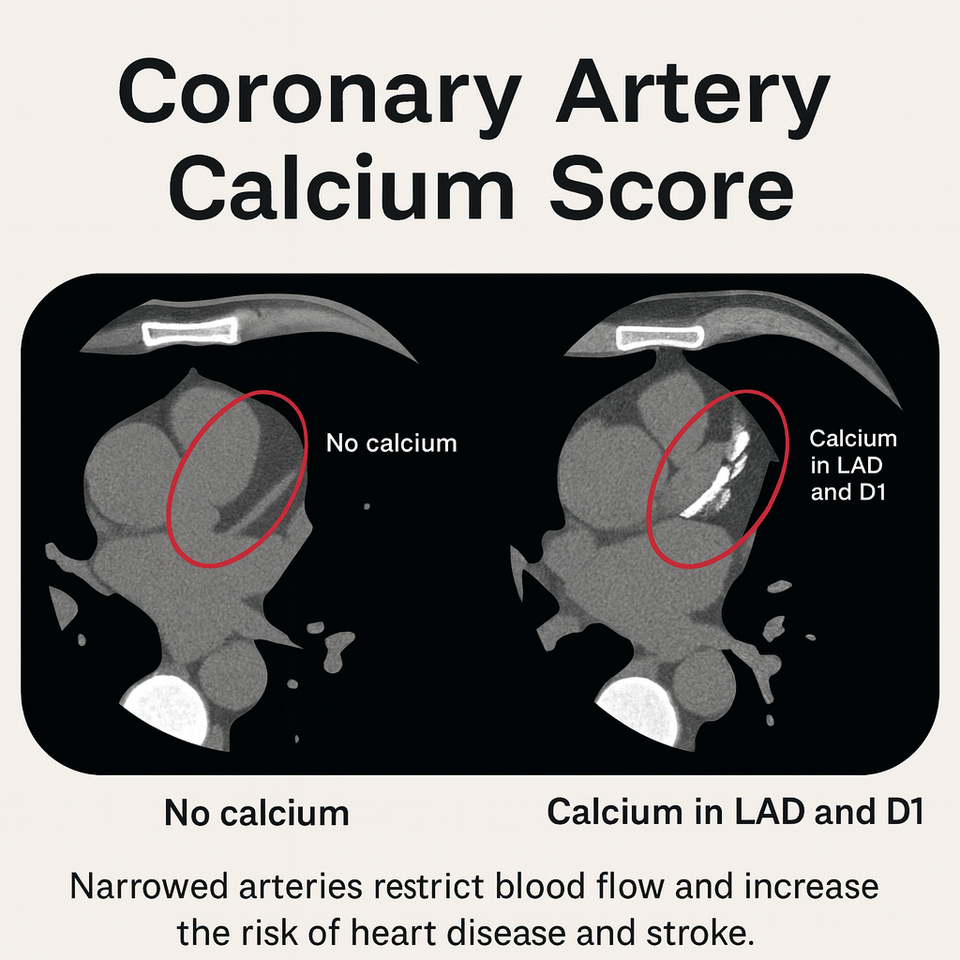
Direct Measurement of Plaque Buildup In The Heart: CT Coronary Artery Calcium Score
For some people, cholesterol numbers and 10-year ASCVD risk don’t tell the full story. You might have low short-term risk but still carry significant lifetime risk of heart disease — especially if you have:
- LDL cholesterol >160 mg/dL
- Strong family history of early heart attack or stroke (men <55, women <65)
- Familial Hypercholesterolemia or other genetic lipid disorders
- Multiple borderline risk factors (blood pressure, triglycerides, metabolic syndrome)
- In these situations, we may recommend a CT Coronary Artery Calcium (CAC) Score — the most direct way to measure plaque buildup in the heart
CT Coronary Artery Calcium (CAC) Score:
- A quick, non-invasive, low-radiation CT scan that detects calcium deposits in the coronary arteries. It takes about 5–10 minutes, requires no needles or contrast dye, and is usually done at a local imaging center.
- Direct measurement of plaque build-up in the heart.
- If you insurance doesn't cover the study, we partner with imaging facilites to get the scan for under $100

Lifestyle Changes To Lower Cholesterol
Medication isn’t the first step for everyone. We focus on sustainable, heart-healthy habits:
- Nutrition: Mediterranean-style diet rich in vegetables, fruits, whole grains, and healthy fats
- Exercise: 150 minutes/week of moderate activity (like brisk walking)
- Weight management: Even a 5–10% weight loss can improve numbers
- Quit smoking: Dramatically reduces cardiovascular risk
- Limit alcohol: Excess drinking can raise triglycerides
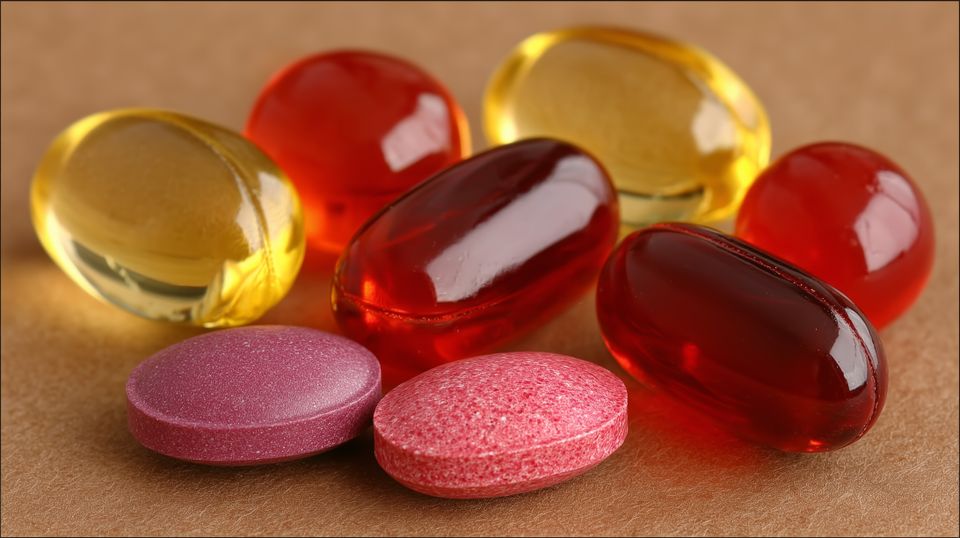
Medications For High Cholesterol
If lifestyle changes aren’t enough, we offer modern, effective treatments:
Statins
First-line therapy that lowers LDL cholesterol and stabilizes plaque. We choose the right statin and dose for you, and monitor for side effects like muscle aches or elevated liver enzymes.
For People with Statin Intolerance:
If you can’t take statins, there are excellent alternatives:- Bempedoic Acid (Nexletol®): Lowers LDL without the muscle side effects
- PCSK9 Inhibitors (Repatha®, Praluent®): Injectable medications that dramatically lower cholesterol and are highly effective for genetic or resistant cases
- Vascepa® (Icosapent Ethyl): Purified omega-3 for people with high triglycerides and elevated cardiovascular risk
- We’ll discuss coverage, affordability, and whether these are right for you.

Ongoing Monitoring & Support
Cholesterol care isn’t just a one-time prescription. We offer:
- Regular labs to track LDL, HDL, and triglycerides
- Blood pressure checks and diabetes screening
- Heart-healthy lifestyle coaching
- Telehealth visits for convenient follow-up anywhere in California
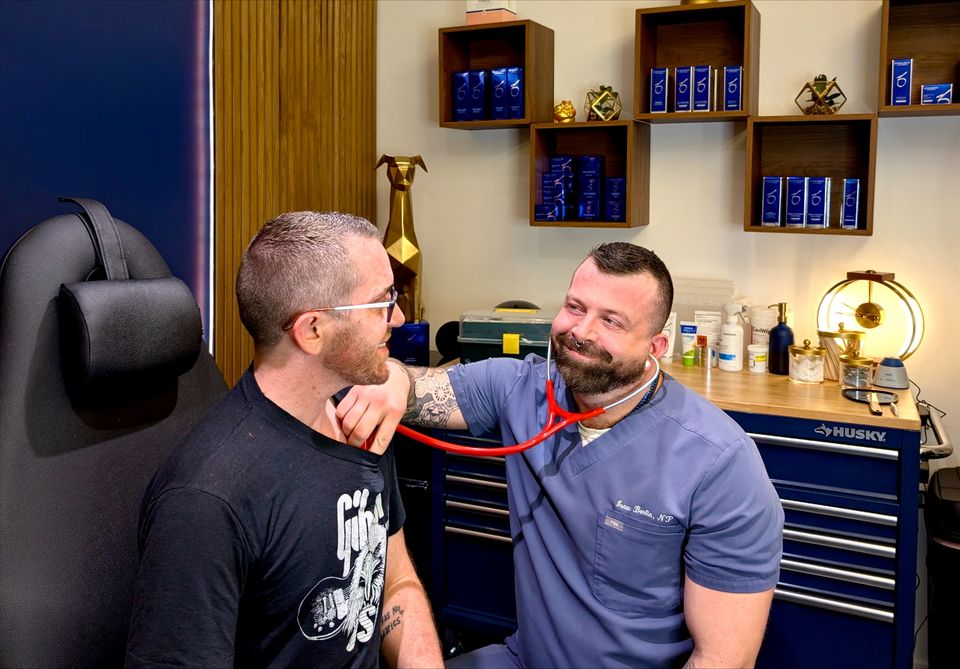
Why Choose Be Well Berlin?
At Be Well Berlin, we believe blood pressure care should feel supportive, not stressful. Here’s what sets us apart:
- Judgment-free care: We treat the whole person, not just the numbers. Every plan is collaborative and respectful.
- Local & statewide reach: In-person care in Los Angeles, West Hollywood, Beverly Hills, or Hollywood—or via telehealth anywhere in California.
- Advanced training: Our care is guided by ongoing education, including participation in UCSF Cardiology for the Practitioner conference (Yosemite, 2023).
-
Focused on prevention: We aim not just to control blood pressure today, but to protect your heart, brain, and kidneys for years to come.
Cholesterol & Heart Disease Prevention Frequently Asked Questions
Q: What symptoms does high cholesterol cause?
A: Most people in Los Angeles, West Hollywood, Beverly Hills, and Santa Monica have no symptoms at all when cholesterol is high — which is why it’s called a “silent risk factor.” The first sign can be a heart attack or stroke. That’s why we offer cholesterol testing and heart health screening in Los Angeles and via telehealth across California to catch problems early.
Q: How do you decide when to treat high cholesterol?
A: We follow ACC/AHA guidelines and calculate your 10-year ASCVD risk score. For patients in Hollywood, Culver City, Burbank, Glendale, or Studio City with borderline results, we often recommend a CT Coronary Artery Calcium (CAC) Score at a local Los Angeles imaging center. This test measures plaque directly, helping us decide if treatment like statins, bempedoic acid, or PCSK9 inhibitors is right for you.
Q: What lifestyle changes are most effective for lowering cholesterol?
A: Whether you’re in Santa Monica walking the beach path, hiking Runyon Canyon in Hollywood, or biking in Culver City, we encourage:
- A Mediterranean-style diet (plenty of vegetables, whole grains, and heart-healthy fats)
- 150 minutes/week of physical activity — cardio or strength training
- Weight management support for sustainable results
- Quitting smoking and cutting back on alcohol
-
Better sleep and stress management to protect heart health
These changes can lower LDL cholesterol by 10–20% and improve long-term heart health.
Q: Are there advanced treatments if I can’t tolerate statins?
A: Yes. For patients from Beverly Hills, West Hollywood, and surrounding Los Angeles areas who have statin intolerance, we offer:
- Bempedoic acid (Nexletol®) – lowers LDL without muscle side effects
- PCSK9 inhibitors (Repatha®, Praluent®) – powerful injectable therapies
-
Vascepa® – prescription-strength omega-3 for patients with high triglycerides
We coordinate with local and statewide pharmacies to make these treatments accessible and affordable.
Q: Can stress and mental health affect cholesterol and heart health?
A: Absolutely. Many of our patients in Glendale, Burbank, and Studio City find that stress, poor sleep, and anxiety make cholesterol and blood pressure control harder. At Be Well Berlin, we integrate mental health care, CBT, and medication management into your heart health plan — whether you see us in person in Los Angeles or through California telehealth.
Q: Can stress and mental health affect cholesterol and heart health?
A: Absolutely. Many of our patients in Glendale, Burbank, and Studio City find that stress, poor sleep, and anxiety make cholesterol and blood pressure control harder. At Be Well Berlin, we integrate mental health care, CBT, and medication management into your heart health plan — whether you see us in person in Los Angeles or through California telehealth.
